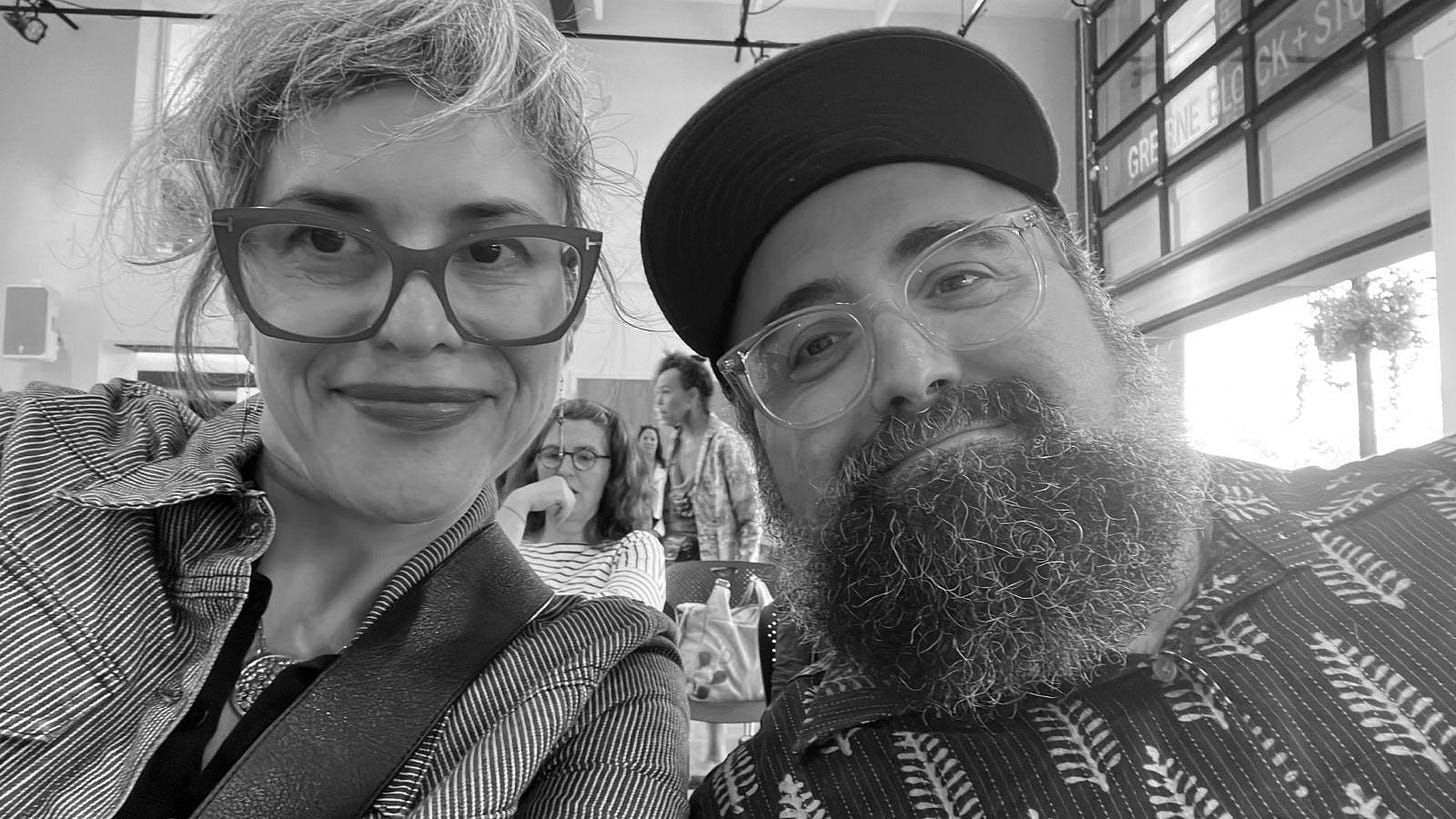When we were conceiving of our Holy Gossip poetry retreats, we knew we wanted the experience to be at once challenging and re-vitalizing. How we ran our workshops (four of ‘em over the course of the weekend) was going to be a big part of this.
We were first introduced to Liz Lerman’s “Critical Response Process” in Felicia Rose Chavez’s The Anti-Racist Writing Workshop: How to Decolonize the Creative Classroom. SInce then, we’ve each experimented with using Lerman’s process in classes at Colby College, the Stonecoast MFA Program, and The College of Staten Island. The differences we’ve seen in classroom culture, community dynamic, peer feedback, and student motivation when we’ve use this approach are profound.
So CRP has become integral to our Holy Gossip retreats. But this style of feedback can take some getting used to for folx trained in the “Iowa” model of creative writing workshops. Last summer, we sent out CRP materials and readings to our participants ahead of the retreat, and also modelled the protocol with our own poems at practice workshops at the beginning of the weekend. Our retreat participants responsed wonderfully, and the workshops over the course of the weekend were vibrant and intense.
Today, we thought we’d share with you just bit of the overview that we give to our Holy Gossip participants about CRP. If the approach interests you, do spend some time reading more about Lerman’s innovative approach to workshop feedback. And consider joining us for one of our summer 2024 retreats in Maine to give it a try yourself!
Liz Lerman developed the Critical Response Process (CRP) out of a recognition that traditional modes of artistic critique often perpetuate power dynamics that are toxic to both art making and personal and communal wellness. Many of us were trained in the Iowa Workshop-style feedback process. A professor (the Master artist) leads a group of students (apprentices) in a more-or-less open ended critique of a student’s poem; students are encouraged to offer their opinions and personal reactions to the work, while the student poet herself remains silent and takes notes. While there can certainly be benefits to this approach, it has also bred a poetic critique that centers the workshop leader (the Master poet) and the subjective ideas of the other students. Structures of patriarchy, white supremacy, and professionalization (valuing book knowledge or academic training) also find themselves perpetuated in this workshop setting. Such an approach often leads to a workshop being tuned around the tastes of the Master poet, and the varying degrees of sensitivity and experience of the fellow poets. And, again, the poet whose work has been offered up remains silent–the idea being that she should take the tough love of her peers and professor and try to make something of it.
In our practice of CRP at Holy Gossip, we will refocus the workshop around the needs and vision of the poet whose work is under critique. The poet artist will be at the center of her workshop: shaping and guiding the critique of the poem she has brought to explore. Cate and Colin will serve as facilitators–helping the poet get the feedback she’s after, and keeping track of time. The rest of the group are responders: engaging in a dialogue that seeks to help the artist achieve her own vision of excellent work. The feedback process is shaped around the needs and ideas the poet has about her own poem; responders temper their urges to offer “opinions” and “personal reactions” as they, instead, shape their creative and intellectual energies around what the poet is trying to make.






Wow, can't wait to read more about CRP and experience it at the retreat in July! Sounds so much better/more useful than the old model